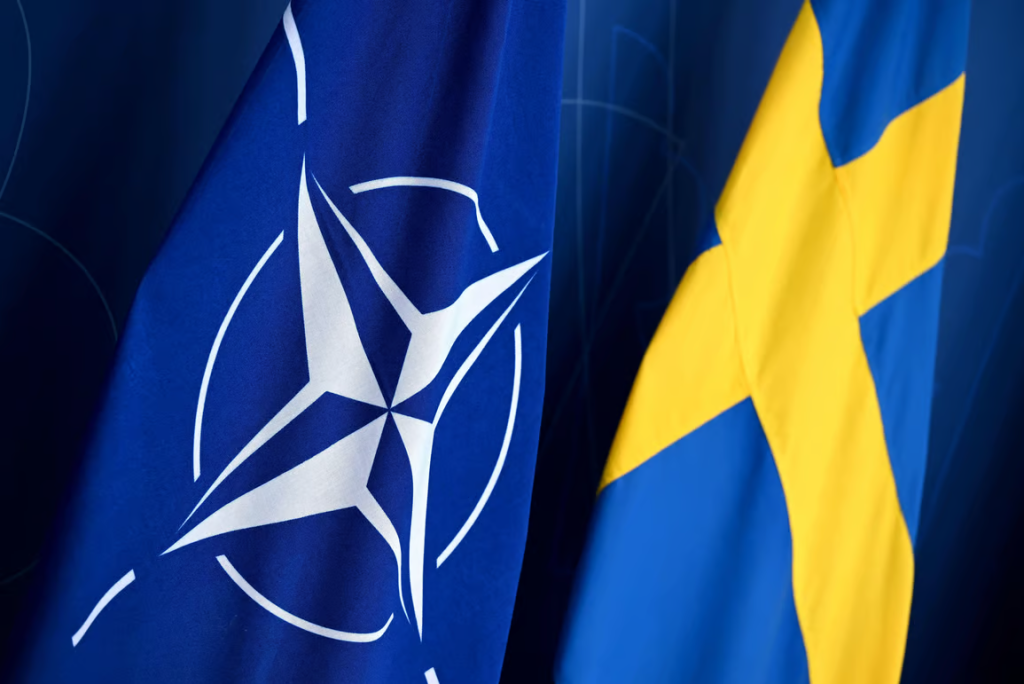In a pivotal turn of events on the geopolitical stage, Sweden is poised to become a member of the North Atlantic Treaty Organization (NATO) following the approval of its application by the Hungarian parliament. This decision, which comes after months of deliberation and delays, signals a significant shift in Sweden’s security policy and occurs amidst escalating tensions in Europe, particularly in light of Russia’s recent invasion of Ukraine.
The endorsement from Hungary, secured during Swedish Prime Minister Ulf Kristersson’s visit to the country, and solidified with the signing of an arms deal between the two nations, represents a crucial advancement towards reinforcing Sweden’s security stance. The vote in the Hungarian parliament witnessed overwhelming support for Sweden’s NATO membership, with 188 lawmakers in favour, six against, and no abstentions.
Under pressure from NATO allies to facilitate Sweden’s accession to the alliance, the Hungarian government, led by Prime Minister Viktor Orban, ultimately acquiesced. As the final hurdle among the 31 NATO members to pave the way for Sweden’s membership, Hungary’s decision carries significant weight amidst ongoing conflicts and geopolitical uncertainties.
In response to the development, NATO Secretary General Jens Stoltenberg expressed his support via social media, stating, “With the approval of all Allies, Sweden is set to become the 32nd NATO Ally. Sweden’s inclusion will enhance our collective strength and security.” Prime Minister Kristersson also hailed the decision as a “momentous occasion,” reaffirming Sweden’s commitment to its responsibilities in Euro-Atlantic security.
Sweden’s departure from its longstanding non-alignment policy in favour of NATO membership reflects growing apprehensions over regional security challenges, particularly in the aftermath of Russia’s military actions in Ukraine. With both Sweden and Finland now poised to join NATO, Western leaders argue that Russian President Vladimir Putin has inadvertently contributed to the alliance’s expansion, contrary to his intended objectives.
Robert Dalsjo, a senior analyst at the Swedish Defence Research Agency, underscored the significance of Sweden’s accession to NATO, noting that it adds a “credible and capable” member to the alliance while eliminating uncertainties in Northern Europe. He further emphasised the enhanced security benefits for Sweden, including reliance on American nuclear deterrence.
However, Sweden’s path towards NATO membership has not been devoid of obstacles. Turkey and Hungary, maintaining relatively warmer ties with Russia compared to other NATO members, had raised objections, thereby delaying Sweden’s accession process. Turkey, in particular, had tied its ratification to demands for stricter action against militants from the Kurdistan Workers’ Party (PKK) allegedly operating from Sweden.
To address Turkey’s concerns, Sweden implemented legislative reforms and relaxed regulations regarding arms sales, demonstrating its commitment to overcoming barriers to NATO membership. Turkish President Tayyip Erdogan further linked ratification to US approval of sales of F-16 fighter jets, indicating Ankara’s expectations for broader cooperation with the United States.
Following Hungary’s endorsement, the formalities for Sweden’s NATO membership are expected to proceed expeditiously. The ratification will be signed by the speaker of the Hungarian parliament and the country’s president in the coming days, with remaining procedural steps, such as depositing accession documentation in Washington, anticipated to follow suit.
In conclusion, Sweden’s imminent NATO membership marks a significant milestone in European security dynamics, highlighting the evolving geopolitical landscape and the alliance’s role in addressing emerging threats. As Sweden prepares to integrate into NATO, attention now shifts to the broader implications for regional stability and the ongoing dynamics between NATO, Russia, and other stakeholders in European security.


